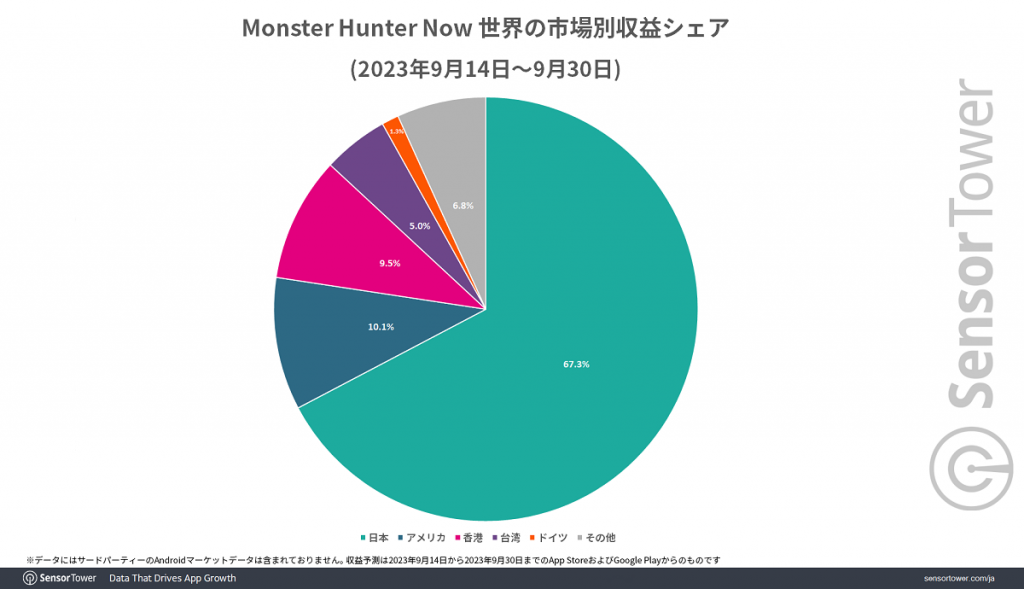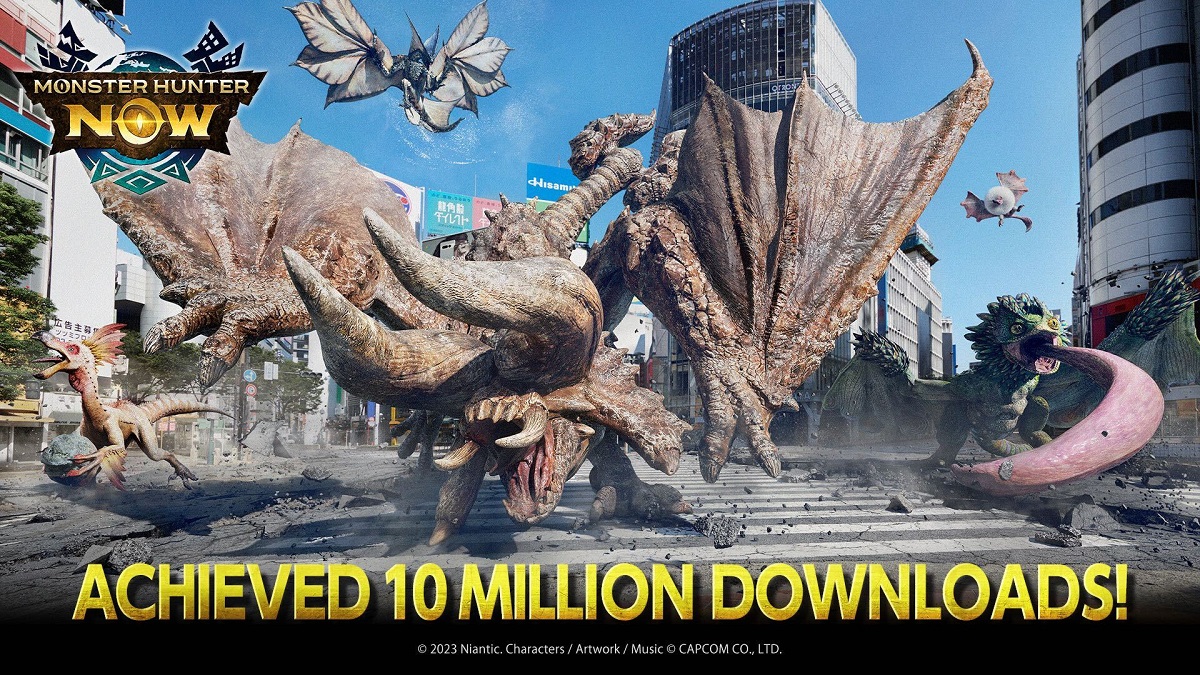Mobile analytics service Sensor Tower has released a new report on the Japanese mobile games market, specifically evaluating the performance of the location-based games market.
Given its highly successful first month, it comes as no surprise that Capcom and Niantic’s Monster Hunter Now takes centre stage in Sensor Tower’s report, claiming the prestige of Japan’s most downloaded free game on release – a title also taken in the US. In fact, MHN spent its first four days at number one in Japan, and reclaimed the crown from September 22nd to the end of the month.
Just over one month from release, Capcom claims over 10 million downloads for the game. To commemorate this achievement, Niantic is offering all players in-game gifts, while a 10M Downloads Pack will also be on sale for a limited time.
“We are delighted that so many people from all over the world have been playing our game in the first month since its global release,” said Kei Kawai, CPO, Niantic. “The adventure of this game has only just begun and we will continue to respond to feedback and work hard to bring more fun and surprises to our Hunters in the months to come.”
“We are very grateful that so many people have been enjoying Monster Hunter Now in the month since its global release”, says Ryozo Tsujimoto, Producer of the Monster Hunter Series, Capcom. “Players all over the world are responding to being able to play a true Monster Hunter experience in a unique and casual way in the real world.”
Monster Hunter Now released on September 14th and by the end of the month, Sensor Tower data suggests it had already surpassed the $20 million hurdle. This aligns with Diandian’s estimates that the game has now reached over $31 million (including October revenues so far), which places Monster Hunter Now as Niantic’s second-biggest game. This is in large part thanks to Japan, with players there contributing 67.3% of revenue, while the US has only accounted for 10.1% of earnings.

Gotta catch ’em all!
Of course, Niantic’s largest game also features in Sensor Tower’s report: Pokémon GO isn’t just maintaining its popularity but gaining momentum, perhaps pushed back into the public eye by the release of Now.
After all, Sensor Tower noted that location-based games as a whole are rising in popularity. Dragon Quest Walk – a Square Enix and COLOPL title that first released in 2019 – increased its download rate in September too; whether bolstered by MHN bringing attention to the genre, or purely by its own fourth-anniversary celebration, DQW continues to benefit from a loyal and growing fanbase.
Sensor Tower believes that location-based games are becoming more competitive, with an increasing number of titles in the genre all vying for the throne. Between Pokémon Go, Dragon Quest Walk, Monster Hunter Now and Nobunaga’s Ambition: Departure, September revenues exceeded $65 million.
Of these four competitors, it may come as a surprise to learn that Dragon Quest Walk actually achieved the highest revenue in its first two weeks in Japan; comparing launch performances, Sensor Tower’s report notes that DQW generated over $40 million, beating even Pokémon Go.
Furthermore, based on Monster Hunter Now’s successful first month, Sensor Tower projects its potential to “surpass” Pokémon Go.
This article was first published on PocketGamer.biz.






































